Corn is a nutrient-rich grain that supports digestive, heart, and eye health — while providing essential vitamins, minerals, and antioxidants. Understanding its nutritional profile and health benefits helps you include it wisely in a balanced diet. Whether you enjoy it as sweet corn, popcorn, or cornmeal, this versatile grain offers both taste and wellness value.
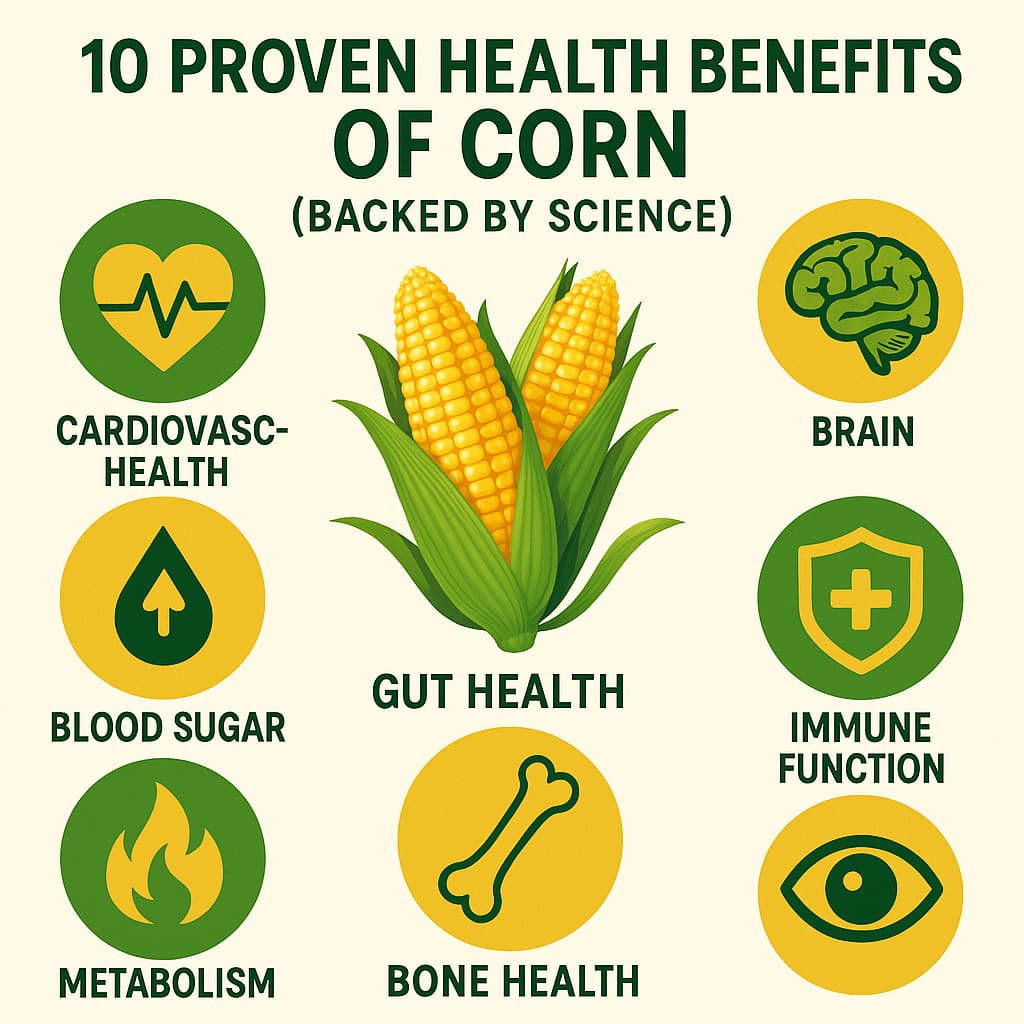
What Is Corn? (Overview and Nutrition Profile)
Corn (Zea mays) is a nutrient-rich cereal grain that originated in Central America and remains one of the world’s most important staple foods today. It belongs to the grass family Poaceae and is consumed globally in multiple forms — including fresh sweet corn, dried kernels, cornmeal, popcorn, and polenta.
Though often thought of as a vegetable, corn is technically a whole grain when eaten with its kernel intact. Whole corn is naturally gluten-free, making it a safe option for people with celiac disease or gluten sensitivity. It provides complex carbohydrates, dietary fiber, and essential nutrients that contribute to steady energy, digestive wellness, and heart health.
According to the U.S. Department of Agriculture (USDA) FoodData Central, one cup (about 164 g) of cooked yellow corn offers a balanced mix of macronutrients, vitamins, minerals, and antioxidants — making it a wholesome addition to balanced diets.
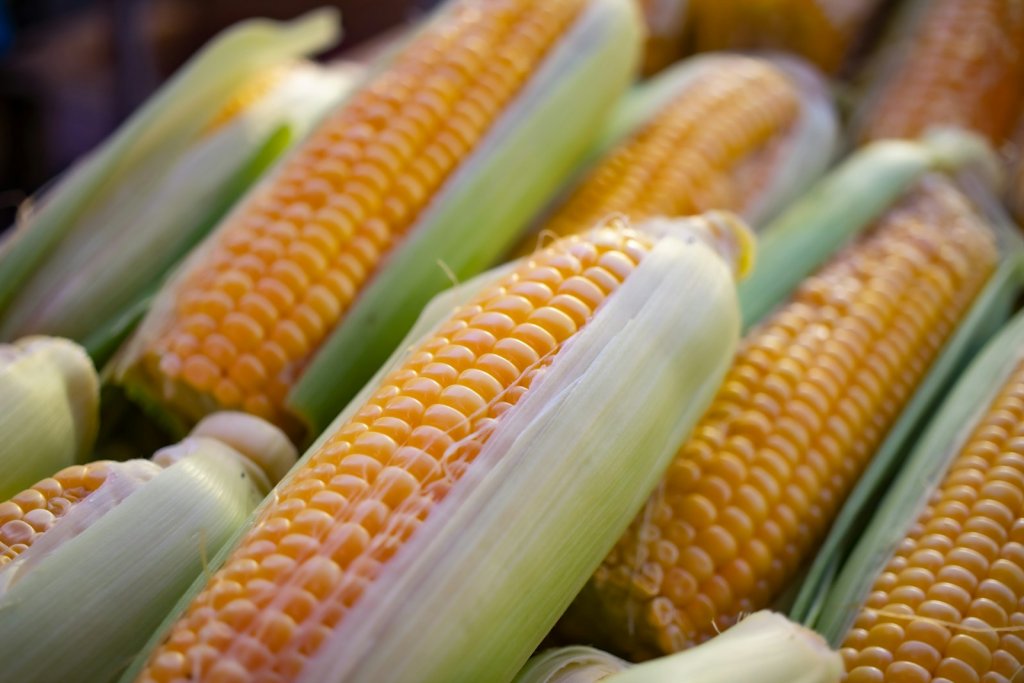
Nutrition Profile of Corn (per 1 cup cooked ≈ 164 g)
| Nutrient | Amount | % Daily Value (DV) |
|---|---|---|
| Calories | 177 kcal | — |
| Carbohydrates | 41 g | — |
| Dietary Fiber | 4.6 g | 16% |
| Protein | 5.4 g | 11% |
| Fat | 2.1 g | 3% |
| Vitamin C | 10.5 mg | 12% |
| Folate (B9) | 75 µg | 19% |
| Magnesium | 58 mg | 14% |
| Potassium | 416 mg | 9% |
| Lutein + Zeaxanthin | 905 µg | — |
Source: USDA FoodData Central, 2025
Corn is particularly rich in lutein and zeaxanthin, antioxidants known for supporting eye health, as well as resistant starch that promotes gut balance. Its fiber content aids digestion, while magnesium and potassium support cardiovascular and metabolic function.
When prepared without added fats or sugars, corn provides a naturally sweet, nutrient-dense, and versatile grain that complements healthy diets worldwide.
10 Proven Health Benefits of Corn (Backed by Science)
Corn is more than a summertime favorite — it’s a nutrient-dense whole grain that supports your digestion, heart, eyes, and overall wellness. Scientific studies confirm that corn’s fiber, antioxidants, and essential minerals contribute to better metabolic and gut health when eaten in its whole, minimally processed form.
1. Supports Digestive Health
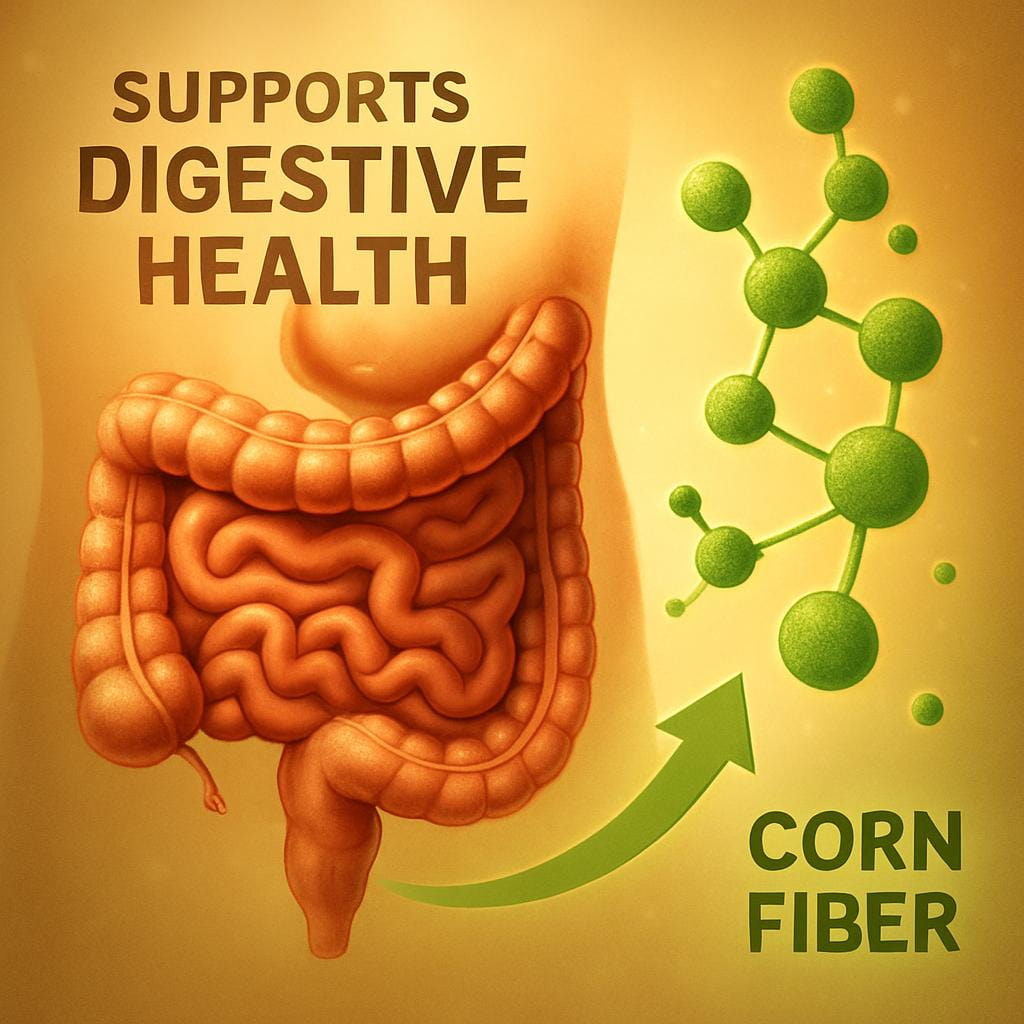
Corn provides both soluble and insoluble fiber, which help regulate bowel movements and support a balanced gut microbiome. According to the Cleveland Clinic, fiber in whole corn acts as a natural digestive aid that promotes satiety and supports colon function.
The insoluble fiber found in corn adds bulk to stool, helping prevent constipation, while soluble fiber nourishes beneficial gut bacteria — key for maintaining intestinal balance and nutrient absorption. Air-popped popcorn and boiled corn are among the best options for gentle, effective digestive support.
2. Promotes Heart Health
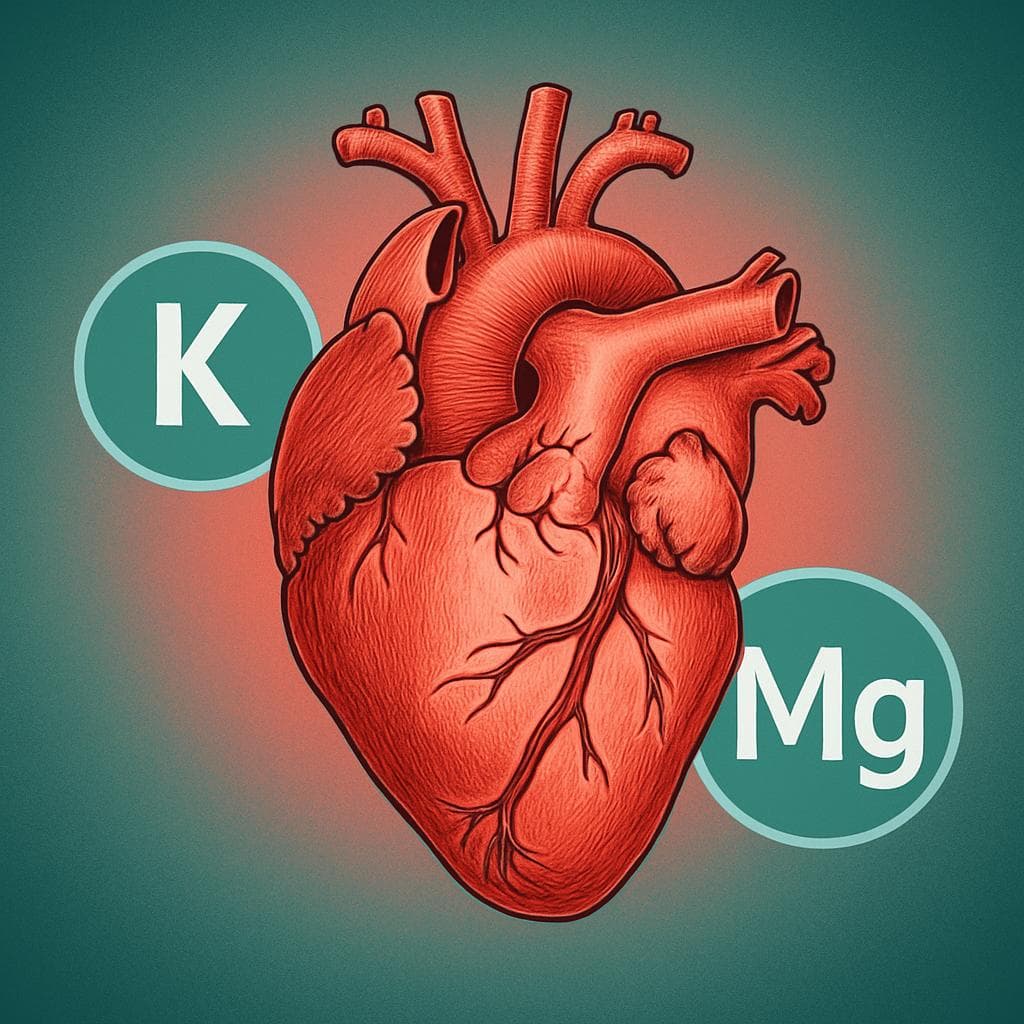
Corn is naturally low in saturated fat and rich in magnesium and dietary fiber, nutrients that may support healthy blood pressure and cholesterol levels.
According to Harvard T.H. Chan School of Public Health, diets rich in whole grains like corn have been associated with a lower risk of heart disease and improved lipid profiles. The fiber in corn helps remove excess cholesterol from the bloodstream, while magnesium supports vascular function and heart rhythm regulation.
3. Helps Maintain Stable Blood Sugar Levels
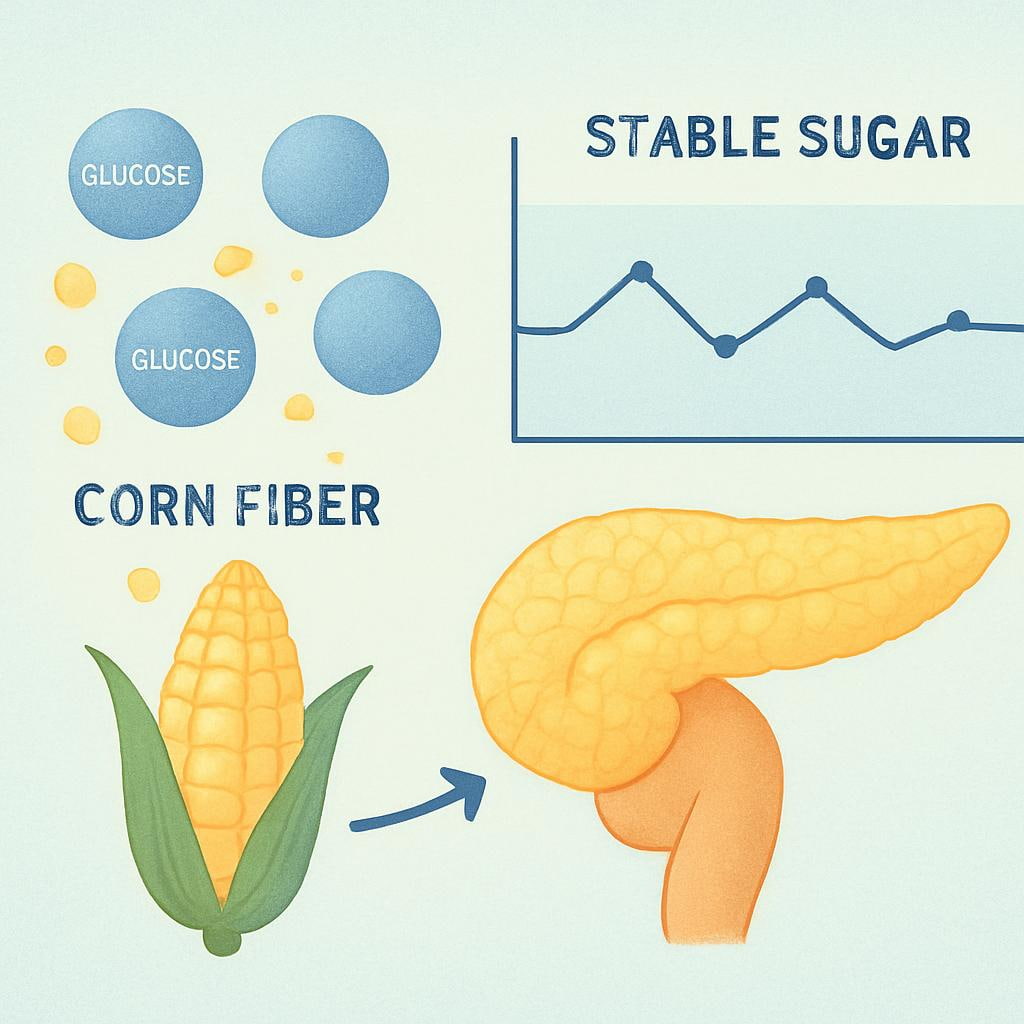
Although corn is a starchy vegetable, whole corn has a moderate glycemic index (GI) and contains resistant starch, which slows glucose absorption and may help maintain stable blood sugar levels.
Research published in the National Library of Medicine found that corn’s macronutrient composition — particularly its fiber and starch ratio — supports better glycemic control compared to refined corn-based foods. For balanced nutrition, choose boiled, steamed, or roasted corn instead of processed forms like corn syrup, chips, or sweetened cereals.
4. Rich in Antioxidants
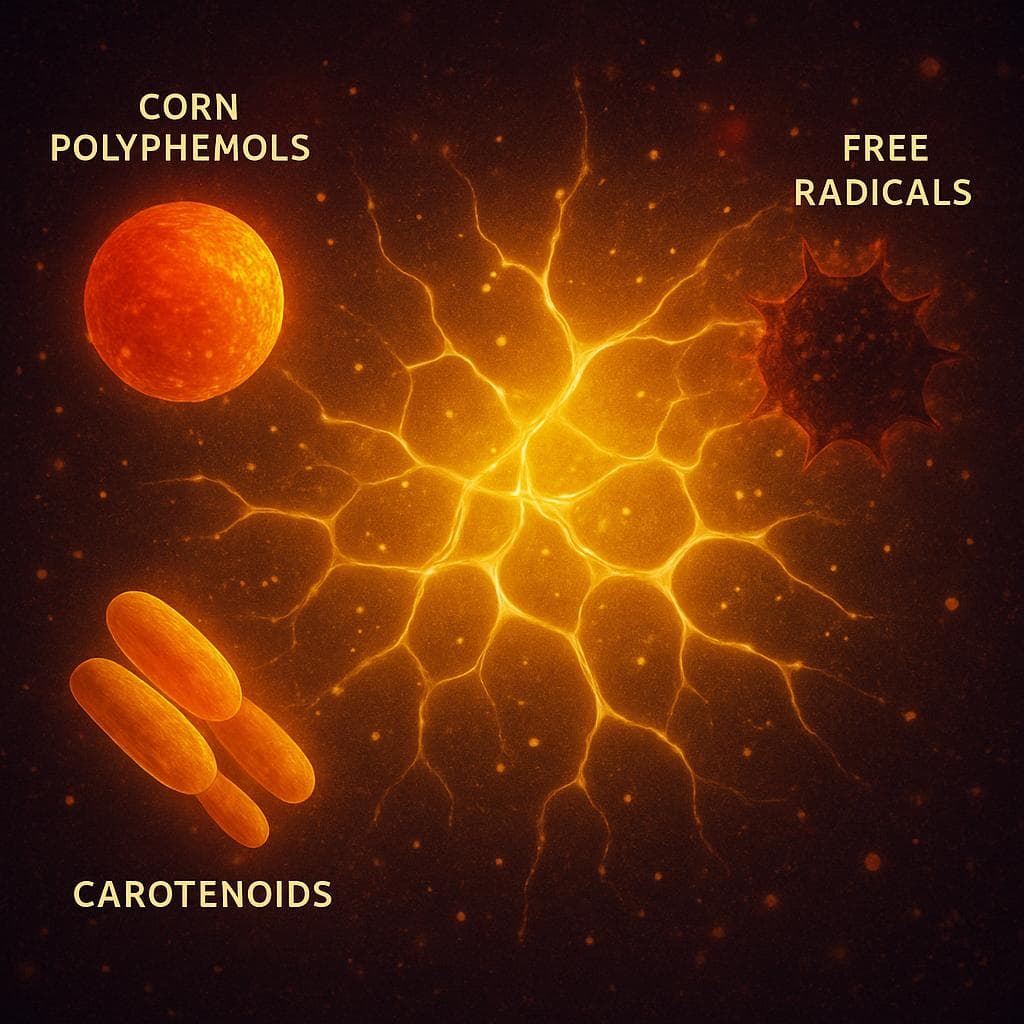
Corn contains a powerful mix of antioxidants, including phenolic acids, anthocyanins (especially in purple corn), and carotenoids like lutein and zeaxanthin.
These compounds protect cells from oxidative stress, which is linked to premature aging and chronic disease risk. A 2023 review in the Journal of Agricultural and Food Chemistry reported that pigmented corn varieties (purple, red, blue) show especially high antioxidant activity that supports long-term cellular health.
5. Supports Eye Health
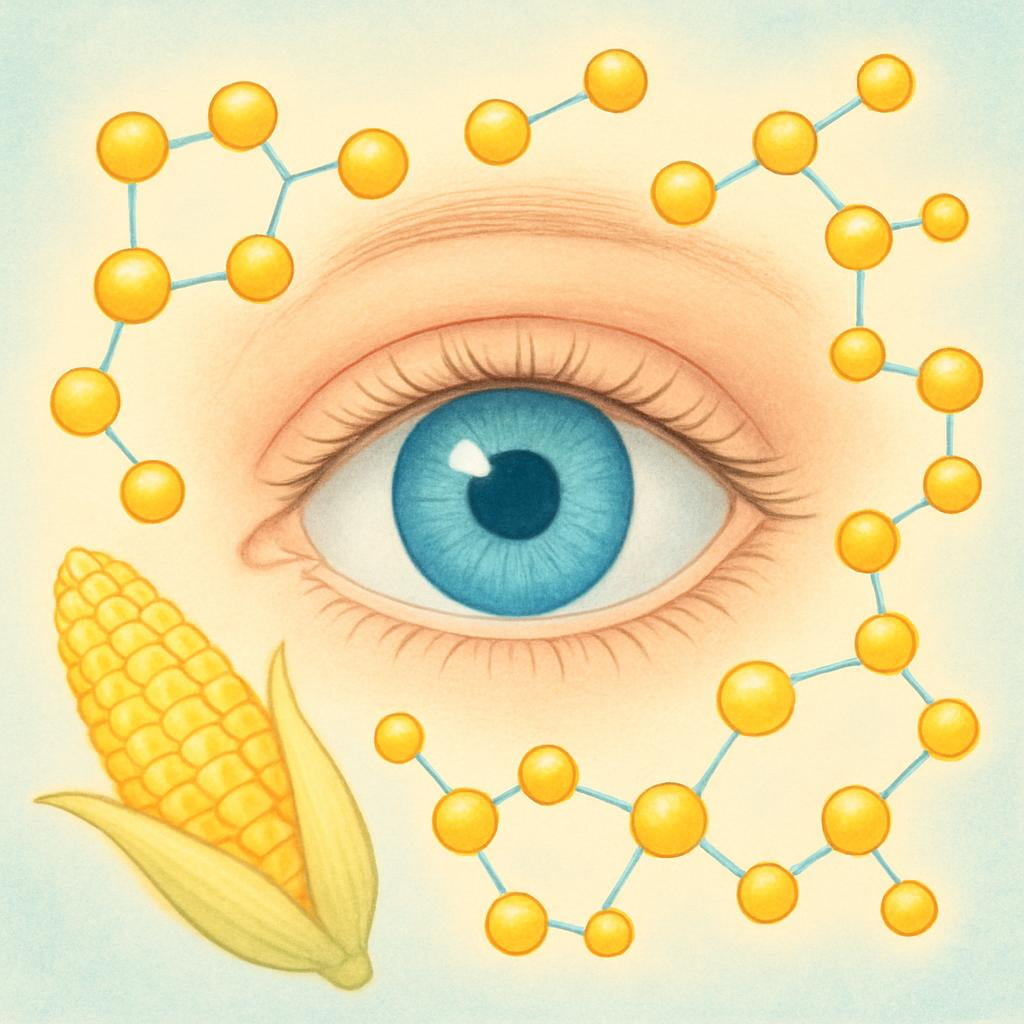
Yellow corn is a valuable source of lutein and zeaxanthin — carotenoids concentrated in the retina that help maintain visual clarity. According to the American Optometric Association, these nutrients act as natural filters that may help protect against age-related macular degeneration (AMD) and blue-light damage.
Regular consumption of yellow corn or cornmeal can complement a diet rich in other carotenoid sources like spinach and eggs for optimal eye wellness.
6. Contributes to Energy and Metabolic Health
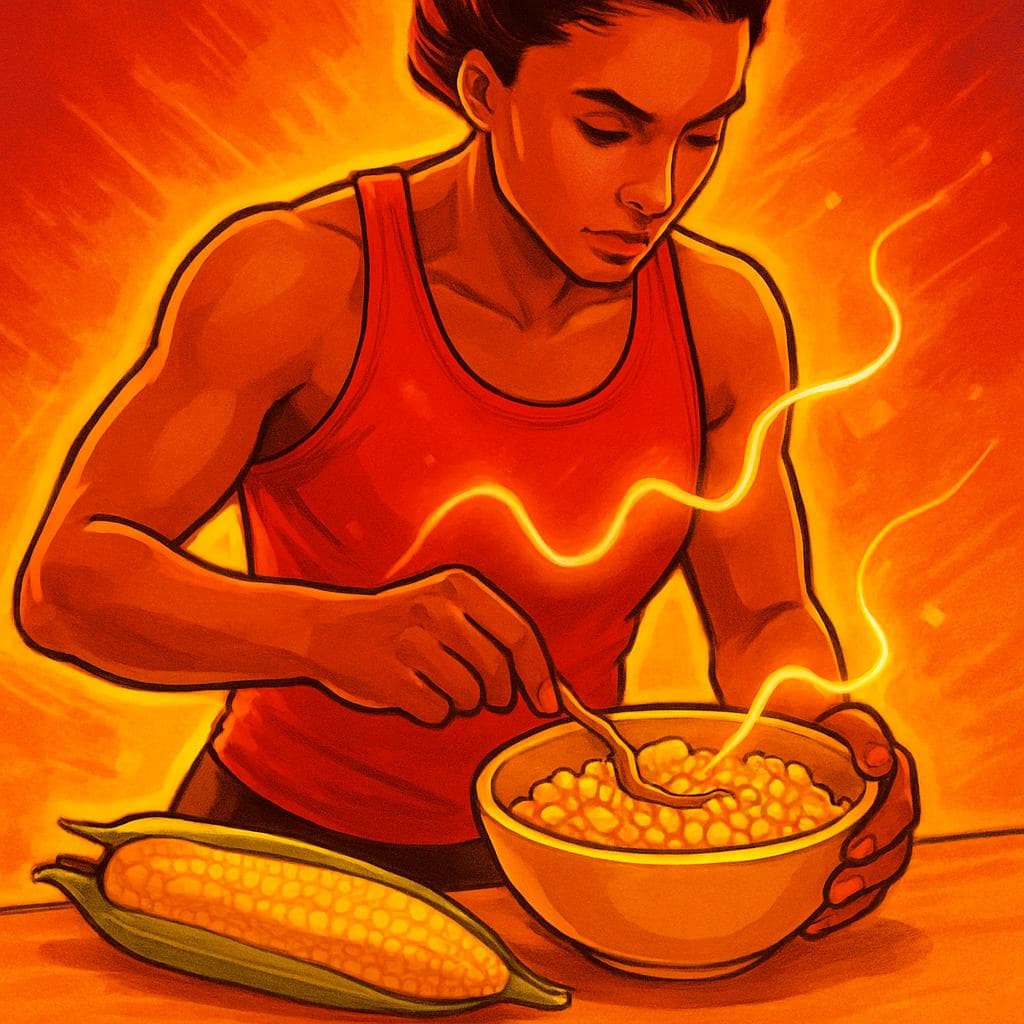
Corn’s complex carbohydrates and B vitamins (particularly thiamin, niacin, and folate) support steady energy release and efficient metabolism.
Thiamin (vitamin B1) aids in carbohydrate breakdown for fuel, while folate contributes to DNA synthesis and red blood cell formation. According to the U.S. Department of Agriculture (USDA), one cup of cooked yellow corn provides over 10 % of the Daily Value for magnesium and folate, making it an excellent energy-supporting food for active individuals.
7. May Support Weight Management

High-fiber foods like corn promote a sense of fullness, which may help reduce overeating and support healthy weight goals.
Whole corn, especially when boiled or grilled without excess butter or sugar, offers a nutrient-dense, low-fat option that aligns well with calorie-controlled diets. Its combination of natural sweetness and fiber makes it a satisfying substitute for refined snacks such as chips or crackers.
8. Supports Immune and Cellular Function
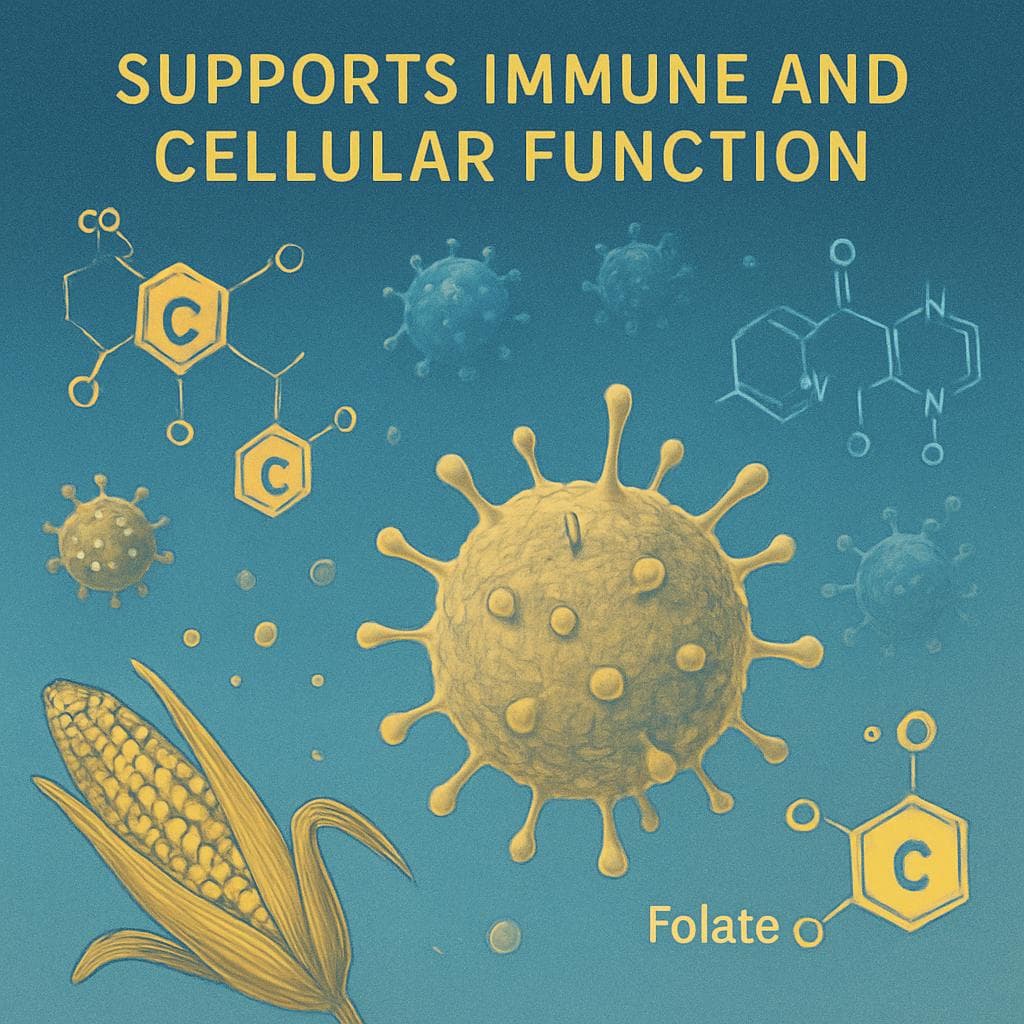
Corn contains several nutrients vital for immune defense and cell repair, including vitamin C, folate, and magnesium.
Vitamin C acts as an antioxidant that supports immune cells, while folate aids in new cell growth and tissue maintenance. These nutrients are particularly important for children, pregnant individuals, and older adults. According to the National Institutes of Health Office of Dietary Supplements, adequate vitamin C intake supports both immune and antioxidant function in the body.
9. Promotes Gut Microbiome Balance
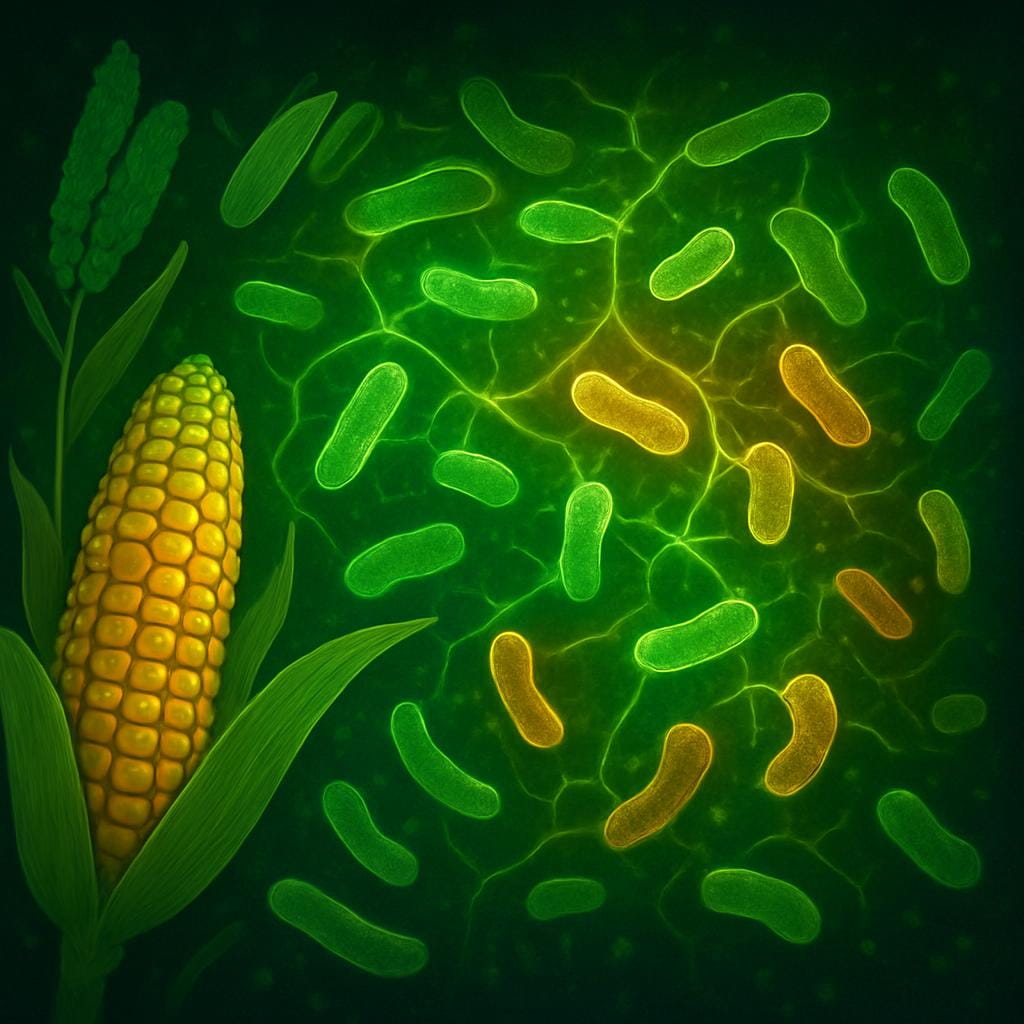
Corn’s resistant starch and dietary fiber play a key role in supporting a healthy gut ecosystem. These compounds act as prebiotics, feeding beneficial gut bacteria such as Bifidobacteria and Lactobacilli, which in turn produce short-chain fatty acids (SCFAs) like butyrate and propionate — vital for maintaining intestinal integrity and immune balance.
A 2023 review published in Frontiers in Nutrition found that resistant starch intake increases microbial diversity and abundance of beneficial species such as Faecalibacterium and Akkermansia. These changes support better digestion, nutrient absorption, and metabolic stability while helping reduce intestinal inflammation.
Choosing whole-grain or minimally processed corn (such as boiled kernels, cornmeal, or popcorn) helps preserve its natural resistant starch content, enhancing its ability to support a thriving gut microbiome and overall digestive wellness.
10. Naturally Gluten-Free Grain Option
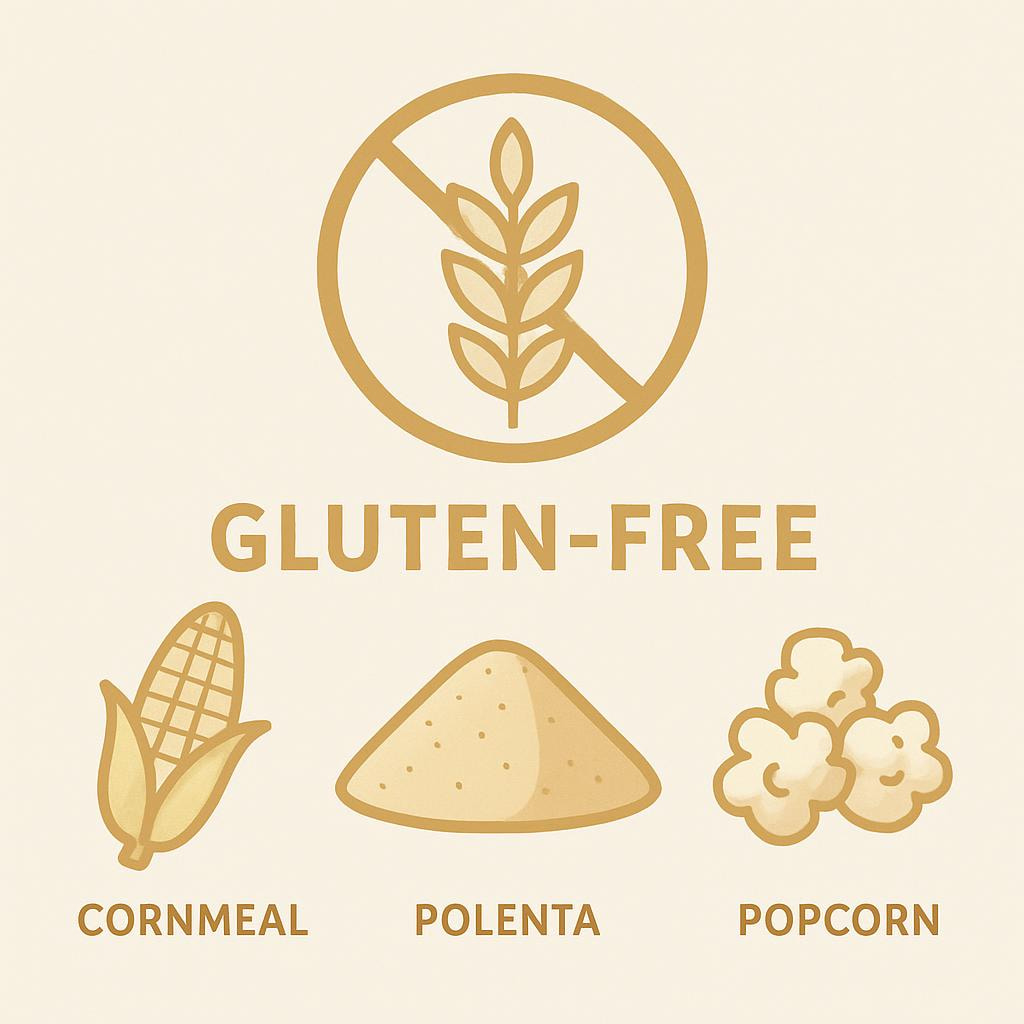
Corn is a naturally gluten-free grain, making it a safe carbohydrate choice for individuals with celiac disease or gluten sensitivity.
The Celiac Disease Foundation identifies corn, cornmeal, polenta, and popcorn as suitable gluten-free options that can replace wheat-based products while maintaining fiber and nutrient intake.
This makes corn a versatile addition to gluten-free diets without compromising flavor or nutrition.
Possible Side Effects and Precautions
Corn is safe and nutritious for most people, but moderation and preparation methods make a major difference. While whole corn supports digestive, heart, and metabolic health, excessive intake of refined or processed forms can have drawbacks. Below are the most common considerations, explained clearly for safe and balanced use.
1. Refined Corn Products
Highly processed foods made from corn — such as corn syrup, chips, and sweetened cereals — are often low in fiber and high in added sugars or sodium. Over time, frequent consumption of these products may contribute to weight gain or poor metabolic health.
👉 For a healthier option, choose whole corn, air-popped popcorn (unsalted), or stone-ground cornmeal, which retain fiber and essential nutrients.
Source: Cleveland Clinic – Is Corn Good for You?
2. GMO and Pesticide Exposure
A large percentage of corn grown globally is genetically modified for yield and pest resistance. According to the National Center for Biotechnology Information (NCBI), genetically engineered crops approved for consumption are generally considered safe. However, individuals seeking to limit pesticide or GMO exposure can select certified organic or non-GMO labeled products. Maintaining a varied diet rich in whole foods helps minimize any single-food exposure risk.
3. High-Fat or High-Salt Toppings
Corn’s natural nutrition can be compromised when served with butter, salt, cheese, or creamy sauces. These additions significantly raise sodium and saturated fat levels, which may affect heart health. The American Heart Association advises preparing corn grilled, steamed, or boiled, and seasoning with herbs, olive oil, or lime juice instead of heavy toppings.
4. Digestive Sensitivity
The fiber and resistant starch in corn support gut health but may cause mild gas or bloating in people with sensitive digestion or conditions like Irritable Bowel Syndrome (IBS). The Mayo Clinic recommends introducing high-fiber foods gradually and drinking plenty of water to ease digestion and reduce discomfort.
5. Rare Allergic Reactions
Corn allergies are uncommon but can cause skin itching, hives, stomach discomfort, or breathing difficulties in sensitive individuals. According to the American Academy of Allergy, Asthma & Immunology (AAAAI), these reactions occur when the immune system responds to specific corn proteins.
If symptoms appear, stop consuming corn and seek medical advice. Those diagnosed with a corn allergy should avoid corn-based products and carry prescribed emergency medication if recommended by a healthcare provider.
Storage and Food Safety Tips
Proper storage and handling are essential to maintain corn’s freshness, flavor, and nutritional quality. Following the latest U.S. Food and Drug Administration (FDA) food safety guidelines helps reduce the risk of foodborne illness and spoilage while preserving nutrient value.
Fresh Corn (in Husk)
Keep unshucked corn refrigerated at 40 °F (4 °C) or below and use it within 2–3 days. Cooking promptly after removing the husk helps maintain sweetness, texture, and nutrient integrity.
Source: FDA – Safe Food Handling
Cooked Corn
After cooking, allow corn to cool slightly, then store it in airtight containers in the refrigerator at or below 40 °F (4 °C). Consume within 2 days. Discard immediately if an off-odor, sourness, or slimy texture develops.
Source: FDA – Are You Storing Food Safely?
Frozen Corn
Store frozen corn continuously at 0 °F (−18 °C) or lower. For best quality, use within 8 months of freezing. Always thaw only the amount needed to reduce bacterial growth risk.
Source: FoodSafety.gov – Cold Food Storage Chart
Canned Corn
Keep unopened cans in a cool, dry place (≤ 75 °F / 24 °C). Once opened, transfer leftovers to a clean, sealed container and refrigerate for up to 2 days. Never store opened canned food in the metal can itself.
Source: FDA – Food Storage and Preservation
Additional Food Safety Tips
To keep corn safe and nutritious, it’s essential to follow proper food handling and temperature practices. Always wash your hands, utensils, and cutting boards with soap and warm water before and after handling corn to prevent cross-contamination.
Avoid leaving cooked corn at room temperature for more than 2 hours (or 1 hour if above 90 °F / 32 °C) to reduce the risk of bacterial growth. When reheating leftovers, ensure the internal temperature reaches at least 165 °F (74 °C) before serving.
These steps follow the U.S. Food and Drug Administration (FDA) “Clean, Separate, Cook, and Chill” food safety principles, which emphasize maintaining cleanliness, avoiding cross-contamination, cooking foods thoroughly, and keeping cold foods chilled to prevent foodborne illness.
By practicing these evidence-based safety measures, you can preserve corn’s flavor, freshness, and nutrients while minimizing the risk of contamination — ensuring every meal remains both delicious and safe to eat.
Frequently Asked Questions (FAQ)
1. Is Corn Healthy for Diabetics?
Yes. Whole corn has a moderate glycemic index and contains fiber that helps slow glucose absorption, supporting steadier blood sugar levels. According to Harvard Health Publishing, corn ranks in the moderate GI range among whole grains.
Choose boiled or air-popped corn instead of refined or sweetened products, and pair it with protein or healthy fats for better blood sugar balance.
2. Is popcorn a healthy snack?
Yes. Air-popped popcorn is a whole-grain, high-fiber snack that supports fullness and digestive health. According to the Cleveland Clinic, plain popcorn is low in calories and rich in antioxidants.
For best results, avoid butter, salt, and sugary coatings — season lightly with herbs or spices to keep it a heart-healthy choice.
3. Does corn cause bloating or gas?
It can for some individuals due to its fiber and natural starches. Gradual introduction and proper hydration can minimize symptoms.
4. Is corn good for heart health?
Yes. Corn’s fiber, potassium, and magnesium help support healthy blood pressure and cholesterol levels.
Source: American Heart Association – Fiber and Heart Health
5. Can corn be eaten daily?
Yes, in moderate portions. Prefer whole or lightly cooked corn and avoid deep-fried or sugar-laden varieties.
6. Is corn gluten-free?
Absolutely. Corn is naturally gluten-free and safe for people with celiac disease or gluten sensitivity.
Source: Celiac Disease Foundation – Gluten-Free Foods
7. What’s healthier — fresh, canned, or frozen corn?
All can be nutritious. Fresh or frozen corn generally retains more vitamins, while canned corn offers convenience; choose low-sodium versions.
Conclusion
Corn is a nutrient-dense whole grain that supports digestive, heart, and eye health while providing antioxidants, vitamins, and essential minerals. When consumed in its natural, minimally processed form, it contributes to balanced nutrition and long-term wellness.
Moderation is key — choose whole corn, steamed or grilled, with minimal added fats or sugars for maximum benefit.
This content is for informational purposes only and not medical advice.
References:
